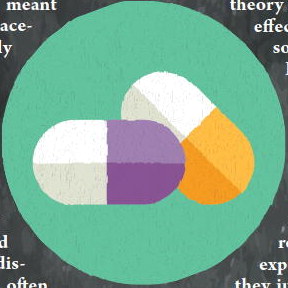Teachable Moment


the Teachable Moment
What is a Placebo and the Placebo Effect?
A placebo is a medication or treatment that resembles an actual medical treatment — but isn’t. It can be a pill, an injection, or even sham surgery or other treatment. A placebo does not contain any active substance meant to affect health. Placebos are used mainly for two reasons: Testing new medications and treatments, and treating patients with psychological ailments.
Testing new medications and treatments for disease, researchers often give one group of participants the actual medication and give a second group the placebo. None of the participants know if they get the real treatment or the placebo. Those given the medication are observed for an actual physical reaction to the treatment itself, and those given the placebo may have a psychological reaction causing a change in their condition or no reaction at all. A psychological change is known as the “placebo effect.”
Research concerning the placebo effect focuses on the relationship of mind and body. A common theory is that the placebo effect is due to a person’s expectations. If a person’s mind expects a pill to do something therapeutic, then it’s possible that the body’s own chemistry can cause positive results. If a person expects to feel relief, they just might. A negative placebo effect is referred to as the “nocebo effect.” Such as if a person fears harmful side effects thinking the placebo is real medication, those might occur.
It is estimated that many patients experience great relief from placebos, suggesting that a positive mental attitude and expectations of recovery may be the best medicine for some.





